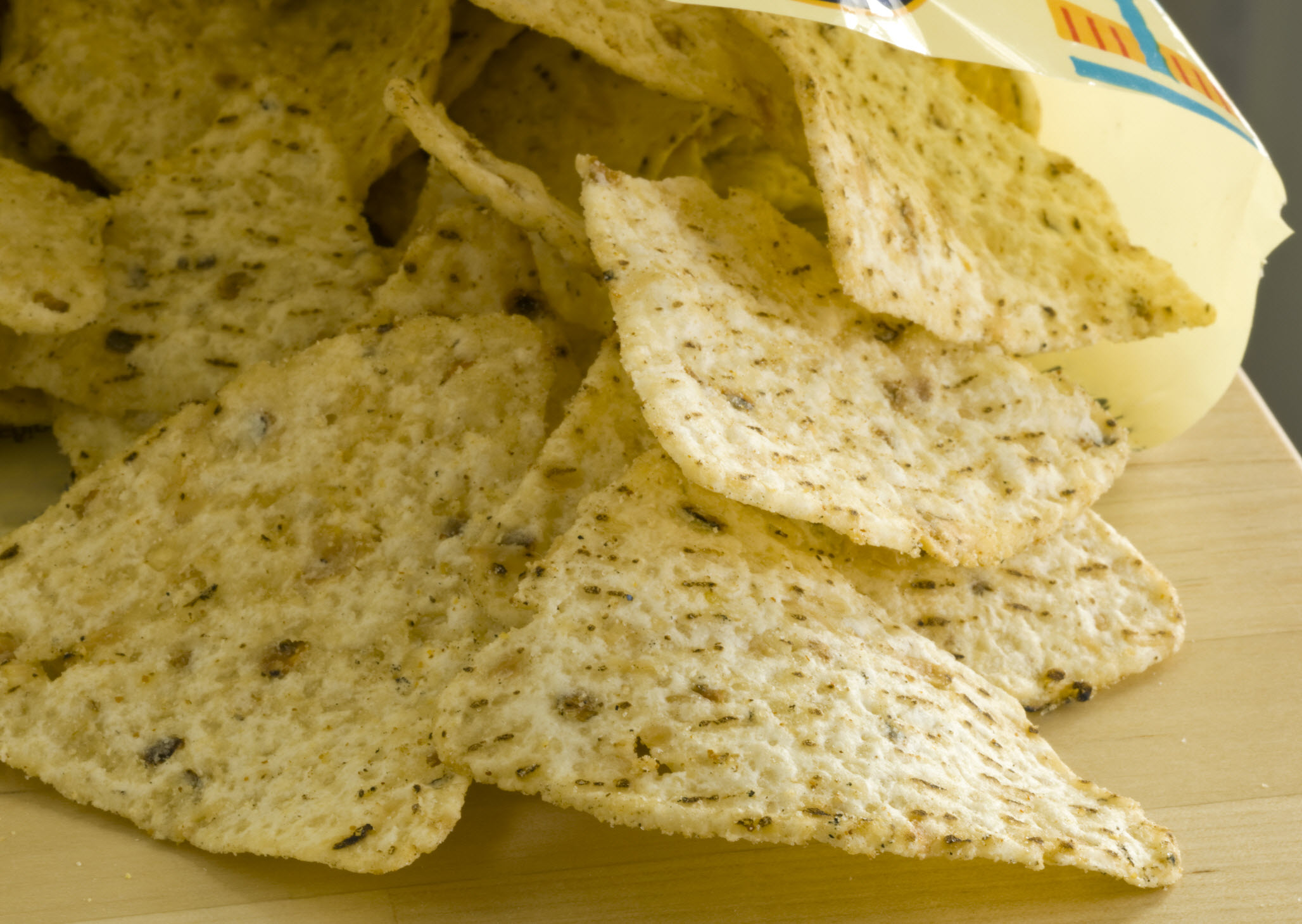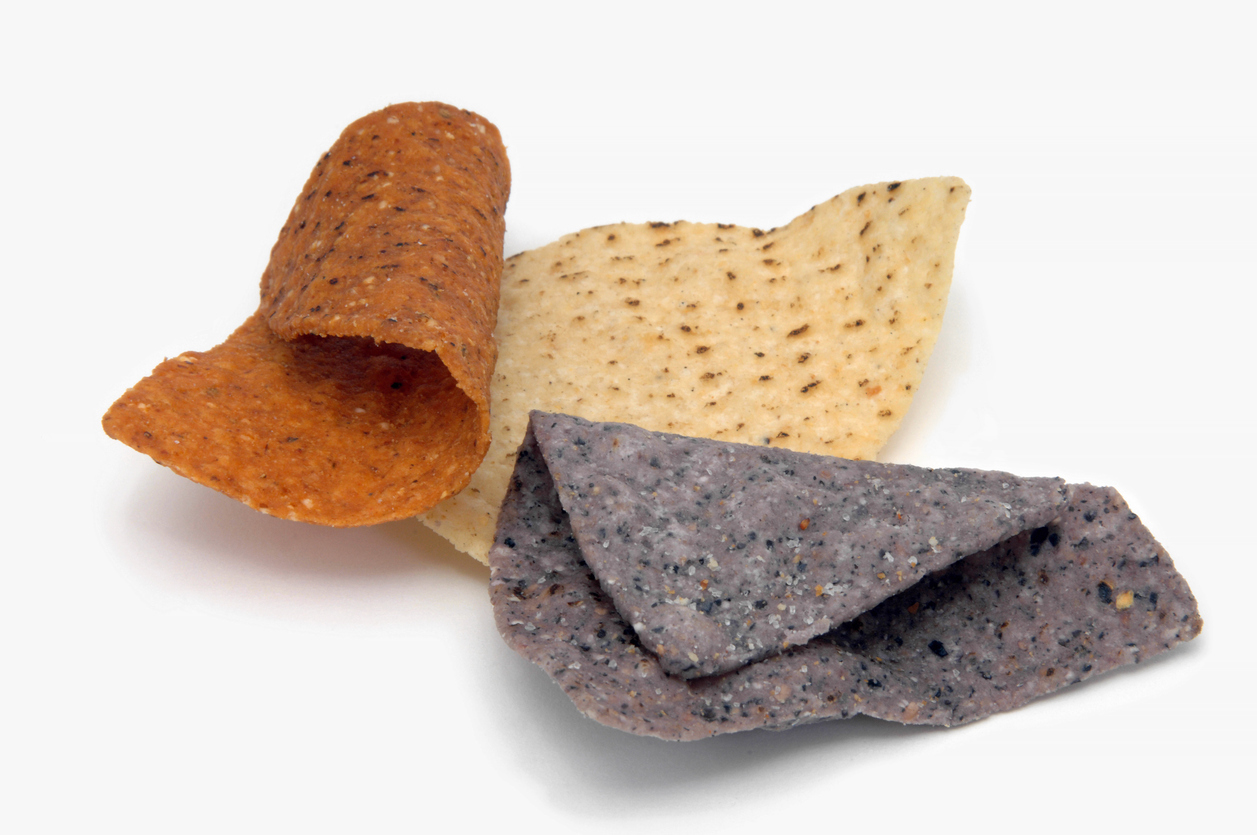7 good reasons NOT to eat chips

Many people know that chips – whether potato crisps or corn tortilla triangles - are a discretionary food, only to be eaten in small quantities, occasionally. But lately, "healthy sounding" chips have appeared on the market. So are kale or lentil chips any better for you than plain old potato chips? And should you be eating chips at all?
Here are my 7 reasons NOT to eat chips
- They’re high in fat and in processed not-good saturated fat. Check them out and you’ll see that, while they do vary, most chips generally have around 25 to 30 per cent total fat.
- If the chips are cooked in sunflower oil, it will state this on the ingredient list. This oil is low in saturated fat so you’ll find these chips have less than 10 per cent of the total fat as their saturated fat. But if the chips are cooked in palm oil, you’ll usually only read ‘vegetable oil’ on the label. But those chips will be around half saturated fat.
- As a nation, we eat too much salt but it’s not the little we add to our cooking or sprinkle over our meals that's the big contributor. Most of the salt we take in comes from processed foods - and chips are a prime culprit. Here are a couple of samples: Red Rock Deli Honey Soy Chicken – 520mg per 100g; and Natural Chip Company Sea Salt 644mg per 100g. Ideally aim for less than 600mg or better less than 400mg per 100g.
- Added sugar. I know we think of chips as savoury or salty snacks but you may be surprised to see how the flavoured types have added sugar. Think Honey Soy, Sweet Chilli, Chicken, Cheesey Corn Chips. They have sugars ranging from around 3 per cent to 5 per cent.
- Too easy to eat. And too easy to overeat! Chips hit all the sweet spots (pardon the pun) – they’re crunchy, they have fat, salt, sugar, and flavours in just the right proportions to make us want more. What’s more, they seem so insubstantial; they’re not filling so they can’t be that bad, can they?
- They’re kilojoule/Calorie dense. In other words you get little nutritional value for too many kilojoules. They’re the opposite of green vegetables which are nutrient-dense!
- I’m sure you’ve heard the expression ‘cheap as chips’. Fact is, they’re not – cheap, that is. Check out the per 100g price on the docket of your favourite chips from your local supermarket and then multiply by 10. That’s the cost per kg. Now potatoes cost around $4 per kg. Potato chips vary anywhere from $11.30 per kilo to a whopping $37.00 per kilo!
Read more about popular salty snacks on my website here. I compare 50 grams (2 ½ oz) of potato chips, corn chips, cashews, beer nuts, pretzels, rice crackers, BBQ shapes and Bhuja Indian spicy mix for their fat, saturated fat and salt.

Are the newest, ‘trendy’ chips with lentils, spelt or beetroot any better?
There are plenty of new, trendy chips on the market and at first sight they often appear to be healthier than the more common potato or corn chips. They range from blue maize to lentil chips; from kale and spirulina to chickpea chips. Not forgetting ancient grains like spelt or einkorn!
Despite the added beetroot, lentil or parsnip, think of these as still chips with around 30 per cent fat, of which half is saturated (if fried in palm oil) and 68 per cent carbs.
If fried in canola or sunflower oil, their saturated fat is low and these are a healthier choice.
The quantity of beetroot or lentil is usually small, at less than 10 per cent, which is NOT high enough to change the nutrition from the base starch of corn (maize) or potato, which are not especially nutritious in the first place. Yes, there’s some protein and some fibre and also phytochemicals from the beetroot or carrots, but not a huge amount.

But don’t forget that they are really a highly-processed, salty, snack food that is all too easy to overeat. Even coloured (thanks to phytochemicals from the beetroot or carrots), they remain a food that's hard to resist. So many people tell me they open a pack and before they realise it, the chips are all gone! Without them even noticing!
All chips can claim to be free of preservatives as they are a fairly dry product (no moisture for bacteria to grow in) and their high salt content also acts as a preserving agent, just like the salted preserved lemons that you make at home.
I prefer the plain or ‘classic’ varieties which are just potato or corn (maize), oil and salt. Steer clear of the flavoured varieties such as Sweet Chilli or Sour Cream and Chives or Nacho Cheese as these have long lists of additives including colours, flavours and flavour-enhancers.
The bottom line
On the whole, chips added nothing beneficial to your diet and it’s easy to eat more than you planned so it’s best to avoid them where possible. However, the old adage of “a LITTLE of what you fancy does you good”, with the emphasis on the “LITTLE” is probably a more realistic policy than giving them up entirely.
Remember they are a discretionary food. To learn more about more about discretionary foods, check out these posts on the Foodwatch website :



